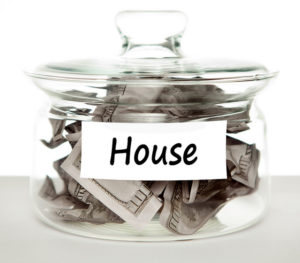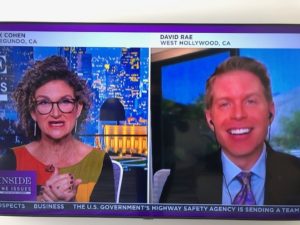
Is a bigger mortgage a better option for the long-run?
Together, my wife and I earn close to $300K per year. How much should we put down on our house? Would buying a bigger mortgage home pay off in the long-run? Will it be better for taxes?
By David Rae Certified Financial Planner™, Accredited Investment Fiduciary™
First off Great question, and one I’m sure if you ask around you may get conflicting advice on. I’d like to walk you through a few things to think about to help guide you towards the best questions you will need to answer to find the best options for your specific financial situation, as always from a financial planning point of view.
-
Will a larger Mortgage payment lower your tax bill?
Technically, the more interest you pay on your mortgage the larger potential for a tax deduction you may have. So yes having more tax deductions should help lower your tax bill, especially with your income falling into a fairly high tax bracket.
That being said, keep in mind spending money just to get a tax deduction really doesn’t work out mathematically in your favor. Let’s assume you are in the 33% tax bracket, you will save roughly 33 cents for every dollar of interest you pay on the mortgage. So not an amazing deal. The total tax savings may increase depending on what state you live in when accounting for state income taxes as well. All the same, you are still spending a dollar to save pennies.
-
What will you do with the money you aren’t putting down on the house?
Mortgage rates are near historic lows, even still what do expect to do with the leftover money? Will it continue to be invested? Will you invest it for something like retirement? Are you going to take a vacation or buy a new car? Or will the account sit in a savings account slowly being spent as splurges pop us as they inevitably do?
If this money is burning a hole in your pocket and will be spent if you don’t put it down on your mortgage payment, then go ahead and more down. For those of you who are a bit more responsible with your spending, you should consider some other options that may be better for your long term financial health.
-
-
-
If you are investing it do you think you can reasonably earn more on your investments that you are paying in interest?
-
-
Take a look at your investments and see have you have done over the long run? If the rate of return is higher than your interest rate on your mortgage you may want to consider putting less down and go with the bigger mortgage. (keep in mind that past performance is not indicative of future results, but can give you insight into what the potential range of results you may hope for in the future in regards to your investment portfolios.)
This option can be beneficial if you are like many Americans and are playing catch up with your retirement savings. (P.S. another way to get some tax deductions is to increase your retirement contributions.)
On the flip side, there are downsides to adding a ton of money to your retirement accounts such as higher taxes in retirement (on potentially higher income) in retirement, and less money to spend right now.
-
-
-
Are you going to spend the money if you don’t put it towards the Home Down Payment?
-
-
Big sums of money sitting around often find ways to be spent. If you don’t put the money into your mortgage, you should really be specific on what if anything you may be spending the money on.
If you are going to buy a new car anyways, rolling that debt into your mortgage is something to look at. But realistically your mortgage interest rate may be much higher than the interest rate you may get on a car loan directly from the bank. Also, be cautious when saying a car payment spread over thirty years can look really cheap, and make it easy to buy a much more expensive car than you need or would pay for if you spread payments over the more typical 5 years. You may end still paying for that “new car” long after that car is gone.
-
Can you afford the higher payments? And how will they affect your standard of living? With less money down your mortgage payment will be higher, can you afford that higher payment, or would your budget run more smoothly at the lower number?
Sounds like you guys are making an income many Americans would aspire to. On paper, you shouldn’t have much trouble qualifying for a much bigger mortgage. Qualifying and enjoying are higher payment are very different things. You can potentially qualify for a mortgage at up to 45% debt to income ratio. Meaning your mortgage (and other debt) can potentially be up to 45% of gross income. I would think you might end up feeling quite house poor if your debt was taking 45% of your pre-tax income.
Also consider: Where will the money to make the higher payment come from? Will you have to cut back somewhere you don’t really want to – think fun or travel?
-
Is paying off the home the way to go?
Once the money is put into the mortgage it can be hard to get back out. Often the cost of a new mortgage can be several thousand dollars all in. (Closing costs, mortgage fees, appraisals, the list goes on) If you are just pulling out a small amount of money, it may make more sense to explore other options like a HELOC or Second Mortgage. Just based on fees alone. If you make a smaller down payment not, you can always make extra payments towards your mortgage later. I do always want homebuyers to have at least 20% to potentially put down for a home purchase. Anything less than this and you may not be financially ready for many of the headaches (aka expenses) that come with owning a home.
Personally, I have a mortgage for around 40% of the value of my home (I originally put 10% down when I bought my home in 2007), but I have no intention of paying it off before I retire. I like having the tax deduction, and I am comfortable investing the additional money that I could be putting towards my mortgage.
House Payoff Fund
My goal is to have a “house payoff fund” that will grow to be at least the size of my mortgage. This way if I ever change my mind, or crap hits the fan, I can pay off the home at any time. On the other hand, if you have paid off your house, and something like the 2008 financial crisis happens again (or you simply lose your job) you may run into trouble getting access to your equity when you need it most. This plan is right for me but flies in the face of the American Dream of owning your house outright, and with that in mind may not be right for everyone.
That being said if I never refinance again or pull money out of my home, my 30-year mortgage will be paid off somewhere in my late 50’s so pretty good timing for retirement, and I expect to have an even more substantial investment portfolio at that point as well.
All that being said, you will want to consider your own personal situation and financial needs when figuring out how much to put down on a home, likewise how to prioritize paying down your mortgage while saving for retirement. A trusted fiduciary financial planner can help you find the right balance based on your age, tax bracket, and financial goals.
Related to Home Down Payment Is Bigger Better?
Boot Camp for Smart Home Buyers- Get Yourself Ready NOW!

DAVID RAE, CFP®, AIF® is a Los Angeles based retirement planner with DRM Wealth Management. He has been helping friends of the LGBT community reach their financial goals for over a decade. He is a regular contributor to the Advocate Magazine, Investopedia and Huffington Post. For more information about Financial Planner Los Angeles David Rae visit his website www.davidraefp.com










[…] to buy a house in very specific Los Angeles neighborhood. I went into hyper savings mode to get a bigger down payment. Here’s tips on how you can do it […]
[…] additional line of credit. There are three ways you can take these fixed reverse <a href="https://www.financialplannerla.com/home-down-payment-bigger/" target="_blank" […]
[…] For borrowers who need income now, you can choose fixed monthly payments. This can be in tandem with an additional line of credit. There are three ways you can take these fixed reverse mortgage payments. […]
[…] the full 20% down payment.</p> <p>Related: <span><a href="https://www.financialplannerla.com/home-down-payment-bigger/" target="_blank" rel="nofollow noopener noreferrer" […]
[…] Related: Home deposit is bigger bigger better? […]
[…] Related: Home Down Payment Is Bigger Better? […]
[…] Related: Home Down Payment Is Bigger Better? […]
[…] Associated: Residence Down Cost Is Larger Higher? […]
[…] Related: Home Down Payment Is Bigger Better? […]
[…] you find the house of your dreams in the $680,000 price range with a 20% down payment and an 8% return on savings after fees and taxes, here are some estimates of what you would need […]
[…] some mortgages, a 20% down payment might be required. A buyer can easily spend another 6% on closing costs, plus there are other expenses that come […]
[…] one-way ticket to poverty. – Anyone with a pulse can lease a Range Rover but coming up with a down payment on a house or accomplishing financial security are a whole different beast. – Economizing now in light […]
[…] down. We planned on the selling of Apple Employee Stock Options over three years to “save up” for the down payment on their new home. Selling over a few years helped them strategically minimize their taxes on the options when […]
[…] planned on the selling of Apple Employee Stock Options over three years to “save up” for the down payment on their new home. Selling over a few years helped them strategically minimize their taxes on the options when […]
[…] biggest challenges facing first-time home buyers is having sufficient money for the down payment. A common misconception is that you need at least a 20 percent down payment to purchase a home. There are plenty of resources and mortgage programs available to first-time home buyers to assist […]
[…] challenges facing first-time home buyers is having sufficient money for the down payment. A common misconception is that you need at least a 20 percent down payment to purchase a home. There are plenty of resources and mortgage programs available to first-time home buyers to […]
[…] Mortgage, […]
[…] ‘bonus’ next year. If you are looking to buy a home, perhaps the refund can add to your house down payment […]
[…] when persevering with to avoid wasting for different monetary targets like retirement. Ready for a bigger down cost might imply lacking out on their perfect residence or what looks like an ever-increasing residence […]
[…] especially when continuing to save for other financial goals like retirement. Waiting for a larger down payment could mean missing out on their ideal home or what seems like an ever-increasing home price to base […]
[…] especially when continuing to save for other financial goals like retirement. Waiting for a larger down payment could mean missing out on their ideal home or what seems like an ever-increasing home price to base […]
[…] especially when continuing to save for other financial goals like retirement. Waiting for a larger down payment could mean missing out on their ideal home or what seems like an ever-increasing home price to base […]
[…] especially when continuing to save for other financial goals like retirement. Waiting for a larger down payment could mean missing out on their ideal home or what seems like an ever-increasing home price to base […]
[…] especially when continuing to save for other financial goals like retirement. Waiting for a larger down payment could mean missing out on their ideal home or what seems like an ever-increasing home price to base […]
[…] Keep in mind these are just basic rules of thumb for net worth levels. If you want to retire early or head off onto a second career, you may need to be saving even more and saving earlier. The scenario discussed here refers only to retirement and does not take into consideration other financial goals such as college funds or the down payment for a home. […]
[…] Keep in mind these are just basic rules of thumb for net worth levels. If you want to retire early or head off onto a second career, you may need to be saving even more and saving earlier. The scenario discussed here refers only to retirement and does not take into consideration other financial goals such as college funds or the down payment for a home. […]
[…] sell at certain times per year. These buyback windows may not line up when you need money for a home down payment or to pay the taxes owed on your other equity compensation. Others may need to put off selling […]
[…] sell at certain times per year. These buyback windows may not line up when you need money for a home down payment or to pay the taxes owed on your other equity compensation. Others may need to put off selling […]
[…] at certain times per year. These buyback windows may not line up when you need money for a home down payment or to pay the taxes owed on your other equity compensation. Others may need to put off selling […]